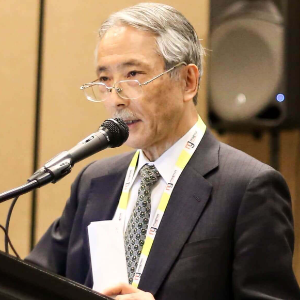Title : Japanese elderly now and in future
Abstract:
Japanese aging rate is already highest among developed countries, and it will increase towards unprecedented 40 percent in 2060. The Japanese population has been ageing rapidly with a very low fertility rate since the 1990s. This low fertility together with a long life expectancy makes it more serious and difficult to reform the social security system in Japan. Japanese social security system needs to be more effective and sustainable, but the process is under way with many difficulties. We discuss present situation of Japanese elderly in terms of healthcare, long-term care, living arrangement and their health status. Then, we simulate future situation of them in 2065. As population is aging, how to provide long-term care for the frail elderly is a mounting concern to the whole society in the developed countries. The need for long-term care is quite common among the very old. It is quite a remarkable event in Japan that the provision of long-term care has been changed from welfare and rationing services to needs-based insurance benefits. As long-term care cost is more closely related to the aging of the population than the healthcare costs of the elderly, it is indispensable to prevent and reduce the incidence as much as possible. Financing of the social expenditure such as LTC benefit, family benefit, benefit for low income families and benefit for handicapped is still one of the key issues in Japan, and new options have been pursued, including broadening the financing basis of social benefits, a desirable mix of public systems and private arrangements, and redefinition of the elderly. Concerning a redefinition of the elderly, we calculated a threshold age. If we define the elderly as the oldest 20 percent of the population based on the stable population in the Life Tables, then the threshold age for the elderly was 59 years old in 1960, 68.5 in 2014 and will be 71 years old in 2050. For healthcare and LTC services, it is especially important to incorporate right incentives in the system, and new forms of solidarity, including fair share of burden among generations, are indispensable in order to make Japanese social security system sustainable. Future Japanese elderly shall provide implications for new forms of solidarity.
Audience Take Away:
• The audience will learn the present and future situations of aged society.
• The audience may be suggested on new forms of solidarity.



